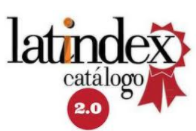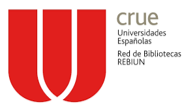La profundización de la fragmentación intra BRICS. La pandemia como acelerador de tendencias y la guerra ruso ucraniana en la turbación de identidades
DOI:
https://doi.org/10.35305/cc.vi135.131Keywords:
BRICS, fragmentación, pandemia, guerra ruso-ucranianaAbstract
The purpose of this article is to analyze the evolution of BRICS, focusing on the period since the third decade of the new century. In the last years of the previous decade, we observed an incipient but growing intra-BRICS fragmentation. On the one hand, there were the "emerging Asians" - China, India and Russia-. On the other hand, there were Brazil and South Africa, affected by economic recessions and political-institutional crises that seriously damaged their international positions. This article argues that the afore mentioned intra-BRICS differentiations accelerated as a result of the COVID19 pandemic and
were reinforced by the outbreak of the Russian-Ukrainian war. Thus, the gap between the Asian members (China, India and Russia) and the Western members (Brazil and South Africa) deepened, with a particular disturbance of identities affecting mainly the ¿Western? parts of the group. The article focuses on three events that we consider key to understanding this phenomenon: the arrival of Jair Bolsonaro as president of Brazil, the COVID 19 pandemic and the Russian-Ukrainian war. We then focus on Brazil and South Africa in order to understand the afore mentioned fragmentation in terms of two variables: the internal political struggles and the worldviews held by each of them, which could contribute to shed light on the current stage of the BRICS
Downloads
Downloads
Published
How to Cite
Issue
Section
License

This work is licensed under a Creative Commons Attribution-ShareAlike 4.0 International License.
Aquellos autores/as que tengan publicaciones con esta revista, aceptan los términos siguientes:
- Los autores/as conservarán sus derechos de autor y garantizarán a la revista el derecho de primera publicación de su obra, el cuál estará simultáneamente sujeto a la Licencia Creative Commons Reconocimiento-NoComercial-CompartirIgual 4.0.
- Los autores/as podrán adoptar otros acuerdos de licencia no exclusiva de distribución de la versión de la obra publicada (p. ej.: depositarla en un archivo telemático institucional o publicarla en un volumen monográfico) siempre que se indique la publicación inicial en esta revista.
- Se permite y recomienda a los autores/as difundir su obra a través de Internet (p. ej.: en archivos telemáticos institucionales o en su página web) antes y durante el proceso de envío, lo cual puede producir intercambios interesantes y aumentar las citas de la obra publicada.
















